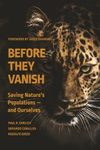![Francis Galton: Pioneer of Heredity and Biometry Francis Galton: Pioneer of Heredity and Biometry]()
Click to have a closer look
About this book
Customer reviews
Biography
Related titles
About this book
If not for the work of his half cousin Francis Galton, Charles Darwin's evolutionary theory might have met a somewhat different fate. In particular, with no direct evidence of natural selection and no convincing theory of heredity to explain it, Darwin needed a mathematical explanation of variability and heredity. Galton's work in biometry - the application of statistical methods to the biological sciences - laid the foundations for precisely that. This book offers a portrait of Galton as the "father of biometry", tracing the development of his ideas and his accomplishments, and placing them in their scientific context. Though Michael Bulmer introduces the curious facts of Galton's life - as an explorer, as a polymath and member of the Victorian intellectual aristocracy, and as a proponent of eugenics - his chief concern is with Galton's pioneering studies of heredity, in the course of which he invented the statistical tools of regression and correlation. Bulmer describes Galton's early ambitions and experiments - his investigations of problems of evolutionary importance (such as the evolution of gregariousness and the function of sex), and his movement from the development of a physiological theory to a purely statistical theory of heredity, based on the properties of the normal distribution. This work, culminating in the law of ancestral heredity, also put Galton at the heart of the bitter conflict between the "ancestrians" and the "Mendelians" after the rediscovery of Mendelism in 1900. Bulmer also details the eventual triumph of biometrical methods in the history of quantitative genetics based on Mendelian principles, which underpins our understanding of evolution today.
Customer Reviews
Biography
Michael Bulmer is Emeritus Fellow of Wolfson College, Oxford University.
Biography / Memoir
By: Michael Bulmer
357 pages, b/w illus
Chapters on Galton's early scientific career... are followed by meatier chapters on statistical theory of heredity, the law of ancestral heredity, discontinuity in evolution, and biometry. For historians of science the book provides a clear roadmap to what Galton did, or said he did, and what he thought, or what he believed he thought. -- Hamilton Cravens Historical Studies in the Physical and Biological Sciences Michael Bulmer's book is only partially about Galton the man. It begins with a biographical chapter but most of the book describes and evaluates Galton's quantitative work... Bulmer guides us skillfully through a great deal of the beginnings of our science. We are where we are because of the labors of people like Francis Galton. Science is not the same thing as progress but Galton's story is relevant to understanding something about the way in which science is related to progress. -- R.J. Berry Human Genetics 2004


































